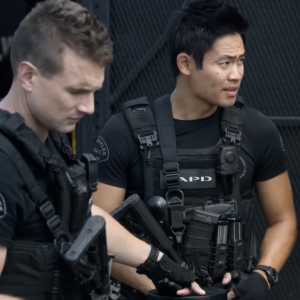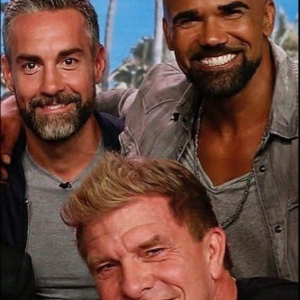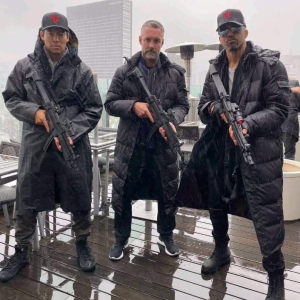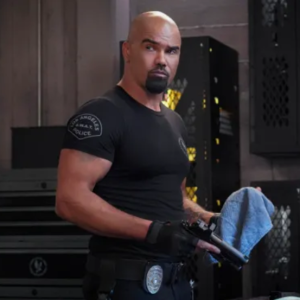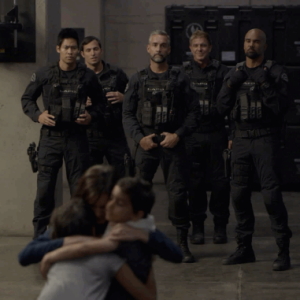The television series S.W.A.T. found itself at a pivotal juncture with the advent of its fourth season, poised to directly confront the seismic shifts in public discourse surrounding policing in America. The untimely killing of George Floyd in May by a Minneapolis police officer ignited a profound social and political reckoning, compelling many industries, including entertainment, to re-evaluate their portrayals of law enforcement. For the CBS drama S.W.A.T., this moment was not merely an external pressure but an immediate call to action from within its own ranks. Star Shemar Moore, portraying lead character Hondo Harrelson, proactively engaged Executive Producer Shawn Ryan, initiating critical conversations about how the show would authentically address the burgeoning Black Lives Matter movement. These discussions, notably including an extensive meeting at Moore’s residence, underscored a foundational understanding shared by the creative team: the series, launched in 2017, was already conceived with the explicit purpose of exploring the often-strained relationship between law enforcement and the African American community. This inherent narrative framework provided S.W.A.T. with a distinct advantage, allowing its creators, including co-creator Aaron Thomas, to delve deeper into themes they had been exploring since its inception, rather than necessitating a radical overhaul of their core premise.
Indeed, the series was born from a desire to bridge the divide exacerbated by events like the 2014 police killing in Ferguson, Missouri, and the subsequent unrest. Aaron Thomas articulated a vision for a protagonist like Hondo – a Black man uniquely positioned with “one foot in his African American community and another foot in the police community” – whose journey would inherently seek to bridge that chasm. This intentional design meant S.W.A.T. had a significant head start over many other police procedurals when the conversation around police accountability and systemic racism intensified. The show’s commitment to these themes was evident even in earlier seasons, such as a Season 2 episode where Hondo experiences racial profiling by a fellow officer while off-duty, highlighting the stark contrast in how he is treated as a Black man versus a police officer. Shemar Moore, not only as the lead actor but also as a producer, expressed a profound commitment to delivering “quality content that has integrity,” emphasizing the critical balance between delivering an exciting, action-packed cop drama and remaining socially “woke” without becoming overly didactic or preachy.
The notion of a “woke cop” on television became a central point of discussion, prompting creators to clarify their artistic intent. Aaron Thomas, reflecting on his own upbringing as an African American, noted the historical absence of such figures in mainstream media, highlighting a new phase where even the idea of a police officer demonstrating deep awareness of systemic issues is groundbreaking. However, Shawn Ryan cautioned against a superficial or forced attempt to “woke up” a show, emphasizing that audience engagement relies on intellectual challenge alongside entertainment, not proselytization. The objective, as articulated by Thomas, is to craft a narrative that is both “delicious to eat” and “has nutrition in it,” ensuring that the social commentary is woven seamlessly into compelling storytelling. This delicate balance ensures that S.W.A.T. can prompt critical thought and dialogue among its viewers without alienating them through heavy-handed messaging.

The Season 4 premiere, titled “Three 17-Year-Olds,” serves as a powerful testament to this approach, directly addressing the social unrest of the summer while integrating it into the show’s existing narrative fabric. Originally conceived as a Season 3 finale flashback episode to coincide with the anniversary of the Rodney King riots, the script was completed in January but production was halted by the COVID-19 pandemic. When filming resumed amidst the heightened racial tensions of summer 2020, the creative team opted to retain the major elements of the pre-written script but infuse it with a modern-day urgency. The episode meticulously interweaves three distinct generational experiences with policing: Hondo’s father’s encounters as a 17-year-old, Hondo’s own experiences during the Los Angeles riots of 1992 when he was 17, and the contemporary struggles faced by Darryl (played by Deshae Frost), the 17-year-old son of Hondo’s incarcerated childhood friend, against the backdrop of current protests. This multi-layered narrative allows the show to explore the cyclical nature of racial injustice and police relations through a deeply personal lens, demonstrating how historical events continue to echo in contemporary society. Shemar Moore reiterated the show’s success in finding a “nice balance” that prevents it from feeling like a news report, instead focusing on the human dimensions of its characters. Hondo, as a Black man from South L.A., constantly navigates the tension between his roots and his role in law enforcement, striving to reform the system from within and reshape public perception of both police and civilians.
Looking ahead, the fourth season of S.W.A.T. ambitiously tackles further complex societal issues, including the emergence of vigilante groups and citizens taking the law into their own hands. Aaron Thomas expressed immense pride in the material being addressed, indicating a commitment to placing the officers directly “in the midst” of these volatile situations, thereby making it their “most ambitious season yet.” This willingness to engage with contemporary challenges extends beyond police-community relations to encompass broader societal responses to perceived injustice. The discussions among the creators also touched upon the evolving landscape of television character archetypes, particularly the apparent decline of the “antihero” trope exemplified by figures like Tony Soprano or Vic Mackey. Shawn Ryan, who himself pioneered the antihero with The Shield, observed that while these characters might not vanish entirely, the genre constantly shifts. If one trend dominates, inevitably, creative forces will emerge to explore contrasting narratives. S.W.A.T.’s commitment to a protagonist who seeks to bridge divides and foster understanding, rather than merely operate in moral ambiguity, positions it at the forefront of this potential shift, signaling a move towards characters who embody integrity and strive for positive societal impact within the framework of engaging entertainment. The series thus not only reflects but actively participates in the ongoing cultural conversation about justice, responsibility, and the evolving role of law enforcement in a complex world.
